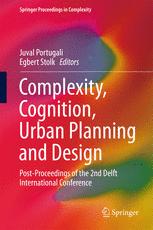

Most ebook files are in PDF format, so you can easily read them using various software such as Foxit Reader or directly on the Google Chrome browser.
Some ebook files are released by publishers in other formats such as .awz, .mobi, .epub, .fb2, etc. You may need to install specific software to read these formats on mobile/PC, such as Calibre.
Please read the tutorial at this link: https://ebookbell.com/faq
We offer FREE conversion to the popular formats you request; however, this may take some time. Therefore, right after payment, please email us, and we will try to provide the service as quickly as possible.
For some exceptional file formats or broken links (if any), please refrain from opening any disputes. Instead, email us first, and we will try to assist within a maximum of 6 hours.
EbookBell Team

5.0
108 reviewsThis book, which resulted from an intensive discourse between experts from several disciplines – complexity theorists, cognitive scientists, philosophers, urban planners and urban designers, as well as a zoologist and a physiologist – addresses various issues regarding cities. It is a first step in responding to the challenge of generating just such a discourse, based on a dilemma identified in the CTC (Complexity Theories of Cities) domain. The latter has demonstrated that cities exhibit the properties of natural, organic complex systems: they are open, complex and bottom-up, have fractal structures and are often chaotic. CTC have further shown that many of the mathematical formalisms and models developed to study material and organic complex systems also apply to cities. The dilemma in the current state of CTC is that cities differ from natural complex systems in that they are hybrid complex systems composed, on the one hand, of artifacts such as buildings, roads and bridges, and of natural human agents on the other. This raises a plethora of new questions on the difference between the natural and the artificial, the cognitive origin of human action and behavior, and the role of planning and designing cities. The answers to these questions cannot come from a single discipline; they must instead emerge from a discourse between experts from several disciplines engaged in CTC.